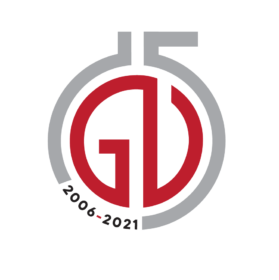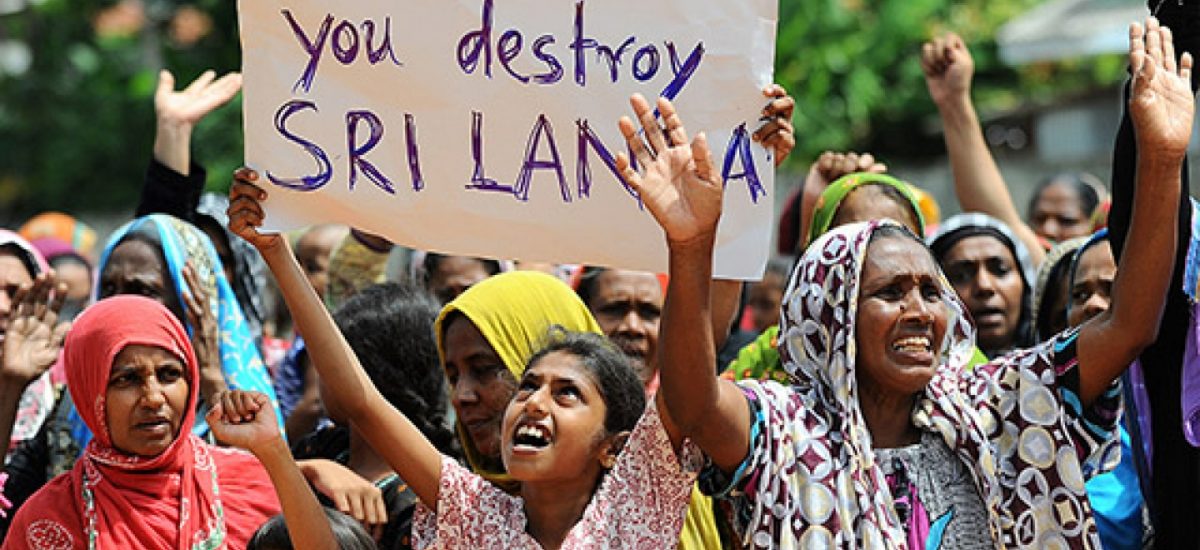Image Courtesy of Crisis Group
It is not strange to Sri Lanka that race, religion and culture are continuously exploited by politicians to maintain their voter base and to secure their seat in governance. It is a convenient ploy that hits the jackpot every single time. Race, religion and culture are naturally sensitive to humans, and they establish a significant portion of their identity. Therefore, historically, all throughout the world, it has been one of the easiest ways to wage wars and to take votes. The recent most disputatious matter in the public discourse was the appointment of the One Country, One Law Presidential Task Force by President Gotabaya Rajapaksa, where Ven Galgodaaththe Gnanasara Thero was appointed the head of a taskforce which did not have any representation from the Tamil community. While the appointment of the Task Force is questionable ‘from head to toe’, many were of the opinion that it is yet another State sponsored attempt to instigate communal disharmony to preserve political hegemony. As a country with a prior record of rulers thriving on chaos, such public slant is nevertheless validating. This article is not yet another criticism of the Task Force, but a precaution that can be taken by the public to rope in a nation that is being systematically pushed into a fiery pit of disharmony and conflict.
Living in a democracy, many are unaware of what democracy entails and what powers democracies are bestowed with. The essence of a democracy is that people are the power. People possess the power to decide the fate and future of their nation. The most fundamental power out of all is their right to vote, and in exercising it they must ensure that they are voting neither the populous extremists nor the potential extremists. Voting to elect public representatives is never a decision to be made impulsively, as a single decision made by a voter can affect the generations to come. A 30 year long ethnic conflict that destroyed many lives and property and reversed development was fueled by decisions such as passing the Sinhala Only Act, protesting the Bandaranaike-Chelvanayagam Pact and other harmful political moves that were made by our public representatives of the time.
We must initiate a culture of voting individuals and not the parties, inculcate a culture of prioritising the value added by the member to the decision making process and not the value added to one’s personal life in finding a job, and a culture of manifesto and policy based voting. It should be an important task exercised by the citizenry to track actions and words of politicians to identify whether they are for the betterment of the country or merely for their personal agendas. The right to protest and freedom of expression are crucial rights that can be utilised in fighting against extremism. The recent P2P march was an excellent indication of replacing violence with non violent resistance. Ideally such resistance should emerge from all people against the government and not merely by affected communities. Sri Lanka should aspire to reach the level of harmony where one community understands the realities of another community and identifies the real enemy behind the problem.
Media, be it mainstream or social, has always played a prominent role in stirring up polarisation between communities. In this day and age of digital democracy, digital media plays a major role in the political ecosystem and it is no secret that social media platforms such as Facebook do not always restrict racist or extremist content. Sri Lanka faced the repercussions of these during the Aluthgama riots. Moreover, mainstream media has always played the role of a puppet, controlled by the political arms in inciting racism and extremism. Therefore there is a serious responsibility on the public to verify information to fight against misinformation and disinformation. Referring to fact-checking services, learning history from multiple sources and from many perspectives and being cautious when sharing racially or religiously sensitive content would be some steps one can take as a responsible citizen.
Many democracies are affected by majoritarianism, where the majority of the population receives primacy in decision making. While many argue it is inevitable with universal franchise, that has not been the case in states such as New Zealand, Norway or Canada. Governments have to take steps such as ensuring minority rights and holding public representatives accountable in the decision making process to transform a majoritarian democracy to a constitutional democracy. However the role of the public in achieving such an objective would be more of a psychosocial phenomenon. Shedding the denial that Sri Lanka is a multicultural country and accepting its diversity would be the first step forward in restructuring the thinking patterns. Learning history from various perspectives and extending association to all communities would be important steps for integration. While celebrating, accepting and preserving one’s own cultural identity, building the identity of a Sri Lankan would ultimately lead to stronger understanding within the communities. When the public is aware, there is little space for the politicians to exploit the situation and polarise the people.
Being a country in a post war period without any proper mechanisms to ensure transitional justice, the fire under the ash can be reignited effortlessly. This is an absolutely crucial period for the country and merely claiming to let bygones be bygones will never ensure a long lasting and sustainable peace. The Aluthgama-Digana riots, the rise of Sinhala Nationalist movements, the Easter Sunday attacks and the re-emergence of Islamophobia are some results of a failed process of peacebuilding in a conflict stricken country. Leaving aside whether these incidents themselves were politically induced, the lack of attention and diligence of the respective governments in controlling these events inherently induced the events that led to one of our country’s darkest era’s. Such negligence by the government in controlling situations such as these is not foreign to Sri Lanka. From President J.R. Jayewardene delaying to declare the curfew for three days during the Anti-Tamil pogrom in 1983 to former President M. Rajapaksa merely tweeting during Aluthgama riots without taking any action and to former President M. Sirisena not taking any action despite the prior intelligence reports on the Easter Sunday attacks.
The country is in a peculiar state of unease; it is vulnerable with economic and health crises, leaving it ideal for incitement of narratives of racial nationalism or religious extremism to create chaos. It should be our utmost responsibility to deflect such political inducements to maintain harmony while the country climbs out of the pit it finds itself in.


